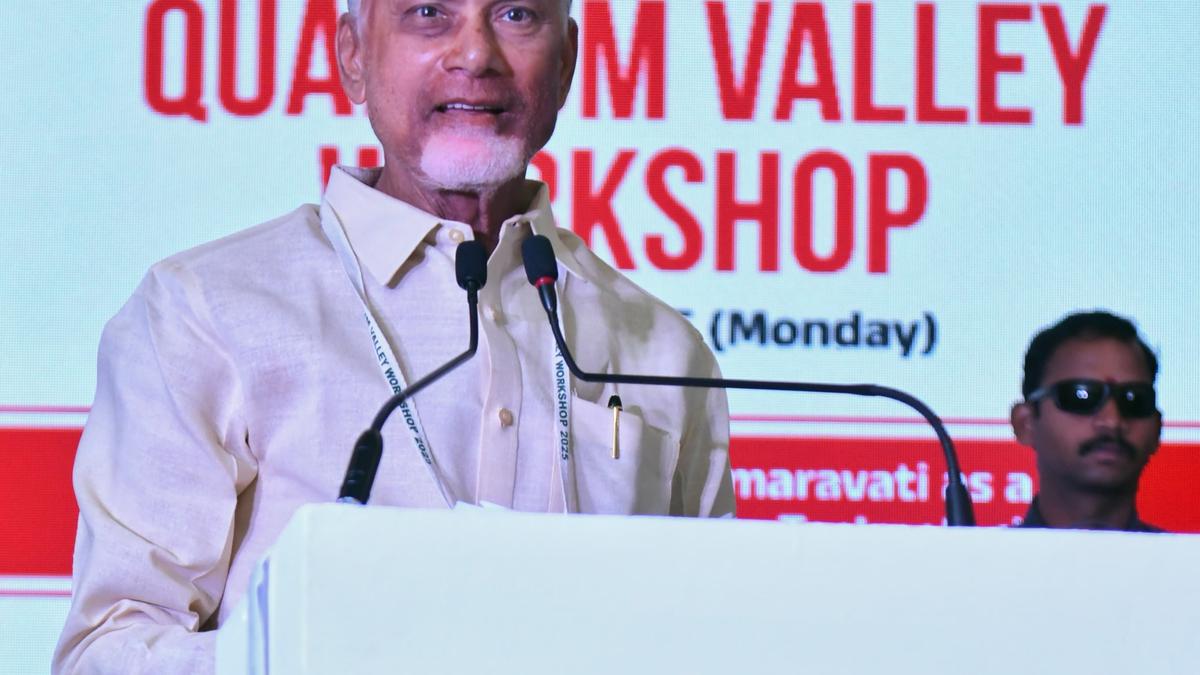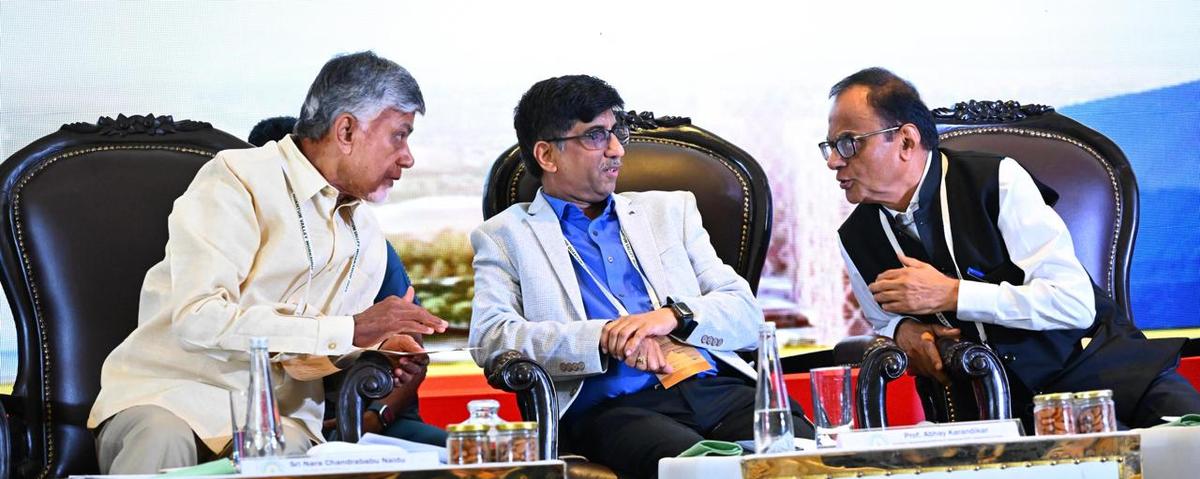Chief Minister N. Chandrababu Naidu on Monday (June 30) expressed his commitment to making a Quantum Computing Centre in Amaravati operational by January 1, 2026, to develop Quantum Valley on the lines of Silicon Valley in the U.S. Support to this end is expected to come from IBM, Tata Consultancy Services (TCS) and Larsen & Toubro (L&T).
“The State government’s endeavour is to produce 100 ‘use’ cases by August 15, 2026, to demonstrate Andhra Pradesh’s resolve to be not just a ‘participant’ in the global Quantum-Artificial Intelligence (AI) movement but be a ‘key player’ in it”, he observed.
Participating as chief guest in the Amaravati Quantum Valley Workshop-2025, jointly organised here by the Government of A.P. and IBM, TCS and L&T, Mr. Naidu recalled how he utilised the power of IT in the 1990s to transform HITEC City in Hyderabad into a global hub for IT and ITES companies. The undivided A.P. had then taken the first mover advantage in taking computers closer to the people.
He said India has the advantages of having a young workforce and phenomenal talent in IT and mathematics, essential to develop algorithms that constitute the backbone of quantum computing.
“In this International Year of Quantum Science and Technology, we should seize the opportunities as we cannot afford to miss the bus”, he noted, while saying that as a policy-maker, he would leave no stone unturned in making the most of quantum technologies, which have diverse applications.
Mr. Naidu said the purpose of such advanced technologies should be to empower communities, while pointing out that A.P. was moving towards building a data lake that would enable better rendering of government-to-citizen services.
WhatsApp governance
Chief Minister N. Chandrababu Naidu conversing with Abhay Karandikar, Secretary of Department of Science and Technology, and Ajay Kumar Sood, Principal Scientific Advisor to Government of India, at Amaravati Quantum Valley Workshop held in Vijayawada on Monday.
The government would soon be delivering 100% of its services through the WhatsApp platform. “Deep technologies and AI are the order of the day. The Government of A.P. is trying to make the most of them. Fortunately, we have a visionary Prime Minister who will not merely answer when a problem is taken to his notice but offers a solution. He is such a forward thinker,” he said, adding that under Mr. Modi’s leadership, the Government of India was extending all possible support to the State government in ushering in the ‘quantum revolution’.
Further, Mr. Naidu said India has been very strong in converting ideas into innovations, but weak in making products out of them. The stakeholders should collectively address that shortcoming to make India a technological powerhouse.
As for quantum technologies, the Union government has laid down a framework in the form of the National Quantum Mission (NQM), and it should be given a tangible shape soon.
Delivering the keynote address, Minister for IT, Electronics and Real Time Governance Nara Lokesh announced that Amaravati would soon host an IBM-2 Quantum Computer with 156 qubits, making it the first of its kind in South Asia, and stressed the need for a quantum-ready workforce, and urged premier institutions like IITs to develop curriculum with a futuristic perspective.
Abhay Karandikar, Secretary, Department of Science and Technology, praised the government’s alignment with the NQM, under which the national quantum ecosystem was being developed by nearly 200 experts drawn from 83 R&D and academic institutions.
Principal Scientific Adviser to the Government of India Ajay Kumar Sood underscored the importance of using quantum technologies for social and environmental good, particularly in areas such as climate change forecasting and secure communications and added that the ISRO’s upcoming Quantum Satellite would give a fillip to India’s quantum communications network.
IBM India MD Sandip Patel termed the workshop as a defining moment for India’s Quantum journey, and noted that over 200,000 individuals globally have accessed IBM’s quantum computing platforms. IBM has already trained over 900 faculty members in India, he said, adding that India was at the cusp of science, business and governance functioning in synergy.
TCS president (Technology, Software and Services) V. Rajanna said quantum technologies were interdisciplinary and transformative, and this was the right time to invest in quantum. He asserted that India’s leadership was key to realising the vision.
M.V. Satish, Advisor to the CMD of L&T, A.P. State Council of Higher Education Chairman K. Madhu Murthy, IIT-Madras director V. Kamakoti, IIT-Tirupati director K.N. Satyanarayana, Chief Secretary K. Vijayanand, Secretary (IT) Katamneni Bhaskar were among those spoke.
Published – June 30, 2025 07:53 pm IST

